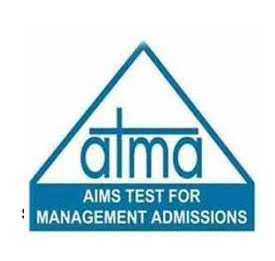A PhD in History is a research-intensive doctoral program with a duration of 3-6 years. The minimum duration to complete a PhD program is 3 years; however, it can be extended up to 6 years in some cases. A PhD in History focuses on the study of past events, historiography and historical trends. The doctoral program helps the candidates develop analytical and research skills during the course.
Aspirants with a postgraduate degree in history or a relevant field are eligible for PhD in History admission. Most universities accept UGC NET or CSIR-UGC NET exam scores for admission. However, institutes like VIT conducted their entrance test, VITREE, for PhD admission. LPU offers a PhD in part-time and full-time modes. Candidates can register for the LPUNEST for scholarship/ admission to the PhD in History.
PhD in History scholars have diverse job opportunities in academia, research institutions or publishing houses. During the PhD program, candidates gain hands-on research experience that enables them to disclose facts through publication or teaching. Working as a professor, a PhD in History scholar can earn an average salary of INR 22 LPA, depending on the experience.
Table of Contents
- PhD in History Highlights
- What is a PhD in History?
- Why Pursue PhD in History?
- Who should Pursue PhD in History?
- PhD in History Eligibility
- PhD in History Entrance Exam
- PhD in History Top Colleges in India
- PhD in History Admission Process
- PhD in History Syllabus
- PhD in History vs. PhD in Archaeology
- PhD in History Jobs
- PhD in History Future Scopes
- PhD in History FAQ
PhD in History Highlights
PhD in History course details are mentioned below:
What is a PhD in History?
A PhD in History provides in-depth knowledge about historical events, cultural studies and historiography. The PhD program is designed in such a way that helps the candidates to learn new perspectives regarding historical studies. Students mainly focus on extensive research throughout the program to learn more about history.
Candidates with a background in history or humanities are eligible to apply for the doctoral program in history. With the advancement of historical research tools and digital archives, PhD in History holders have the opportunity for long-term growth in their careers. Further, a PhD in History holder can earn up to INR 22 LPA depending on the job role and experience.
Why Pursue PhD in History?
A PhD in History degree is a prestigious qualification for individuals having an interest in historical research. Few reasons to pursue this course are:
- This doctoral Program is curated in such a way that candidates learn analytical and research skills.
- A candidate with a PhD degree in history can contribute more to society by writing books or research papers.
- Further, scholars with a PhD in history can collaborate with the government to discover more historical facts.
- As technology advances every day, historical data analysis is becoming easier and thus ensures job guarantee/stability in the long run.
Who should Pursue PhD in History?
A PhD in History is ideal for individuals passionate about exploring, researching, and interpreting historical events, processes, and contexts in depth. It prepares candidates for careers in academia, research institutions, museums, archives, and policymaking, where historical insight is valued. Candidates who should pursue a PhD in History are:
- Those dedicated to conducting original research that deepens understanding of specific historical periods, themes, or regions.
- Aspiring university professors, scholars, or researchers focusing on teaching and advancing historical knowledge.
- Individuals interested in interdisciplinary approaches, connecting history with politics, culture, economics, or social studies.
- Professionals aiming to work in museums, archives, cultural heritage, documentation centers, or history-focused media.
PhD in History Eligibility
Candidates interested in pursuing a PhD in History must meet the following eligibility criteria:
- Completed a post-graduation degree in history or a related field such as from a recognised university
- Candidates must have a minimum of 55 to 60% marks in aggregate
- A valid score in UGC-NET/CSIR-NET or equivalent
PhD in History Entrance Exam
Admission to a PhD in History is based on an entrance exam like UGC NET, AIIMS PhD Entrance Test, JEST, GATE, etc. Pondicherry University and Ashoka University conduct their entrance test for admission to the PhD in History program. More test details are mentioned below:
Want to study human civilizations, cultures? Check Ph.D. in Anthropology
PhD in History Top Colleges in India
Aspirants looking for admission to a PhD in History can check out the top colleges listed below:
Interested in studying social structures, human behavior analysis? Check PhD Sociology
PhD in History Admission Process
The PhD History admission procedure is undertaken primarily online by universities. Suitable candidates may apply by logging into the official university website and submitting their application form online. For instance, the admission procedure at Lovely Professional University (LPU) is undertaken by following the following steps:
Step 1: Log on to the official website of LPU and register by filling up the required details.
Step 2: Appear for and qualify for the LPUNEST entrance exam, which tests the research aptitude of the candidate.
Step 4: Shortlisted candidates will be called for a personal interview to test their research proposal as well as academic readiness.
Step 5: Candidates clearing the interview must fill up the admission formalities and pay the fees within the time frame specified to confirm their admissions.
Documents Required:
- Mark sheets and passing certificates of Class 10, Class 12, and undergraduate degree
- Master's degree mark sheet and qualifying exam certificate
- Proof of address
- Recent passport-sized photograph
- Research proposal relevant to the PhD topic
- Letters of Recommendation
- Statement of Purpose
PhD in History Syllabus
The curriculum for the PhD in History is almost similar for the majority of the colleges. However, the syllabus of the PhD in History offered by the University of Mysore is mentioned below:
Click to read more about PhD in Political Science
PhD in History vs. PhD in Archaeology
Here is a comprehensive comparison table between a PhD in History and a PhD in Archaeology:
PhD in History Jobs
PhD in History graduates can avail of several job roles in the government and private sectors. Individuals with a PhD in History are highly valued in the job market as they have strong analytical and research skills. Some of the job roles one can opt for after a PhD in History are mentioned below:
Also read about PhD in International Relations
PhD in History Future Scopes
After completing a PhD in history, candidates can explore various career options such as professors at private and government institutes/universities. Apart from these, some other options are listed below:
- The individuals can write books or research papers
- Candidates can apply for the faculty position
- Individuals can carry out postdoctoral research
- Candidates can also work as a Curator or an Archivist at the museums
PhD in History FAQ
Can I pursue a PhD in History online?
Yes. Many institutions offer a PhD in History through an online mode. Candidates interested in pursuing a PhD in History in online mode can apply to the Indira Gandhi National Open University (IGNOU).
How can I do a PhD in IIT without GATE?
Aspirants who have a CGPA of more than 8 can get admission to the PhD in History program at IIT Madras. However, the department head will evaluate the application and necessary documents for admission without a GATE score.
Is the entrance test mandatory for PhD in History Admission at IGNOU?
Yes. Candidates need to appear for the IGNOU entrance test for admission to the PhD in History. However, candidates with JRF/NET qualifications are exempted from the entrance exam.
How competitive is the PhD History admission process?
It is very competitive and hundreds of applicants battle over the few openings every year. Selection panels evaluate originality and depth of your research proposal, strength of writing samples, and academic records. A significant factor is also alignment with areas of faculty research. Application shortlisting is selective; the most qualified candidates are invited.
Am I required to possess a Master degree before I can apply to a PhD in History?
The majority of universities in India do require a Master in History or a related subject at 55% or higher, although a few permit direct entry with a BA with an integrated MA-PhD path. Having an MA also assists in demonstrating your readiness to work at the research level. Admission, however, is based on overall academic strength, research potential and performance in the entrance exams.
Can I do a part-time PhD in History?
It is usually good to be a full-time student as various responsibilities of coursework, research, and teaching can be quite demanding. Part-time PhDs are uncommon and typically only acceptable by those who work within an academic or related field. These applicants might possess less strict deadlines but have to achieve strict academic standards. It is advisable to refer to the policy of a particular university.
What type of assistance is given to PhD History students?
Research funding, stipends or assistantships, mentorship programs, university libraries and online resources are often made available by universities. Publishing, academic writing, and career skills workshops are common. Most also provide wellness support and conference travel grants to assist students in their professional and academic development.
What is the duration of a PhD in History?
The average time is between 5 and 7 years, but others take more or less time based on the complexity of the research being done. The schedule comprises course work, qualifying exams, research proposal acceptance, dissertation writing, and thesis defense. Delays may arise as a result of fieldwork, data collection, or individual situations. Many universities may set a time limit on what is considered the maximum completion time.











